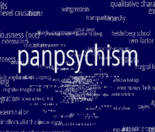Tuesday, 5 January 2016
Is Consciousness Ubiquitous?

When scientists are trying to explain some of the strangest, most complex phenomena, such as the origins of the universe or human consciousness, it’s not so surprising that some of the hypotheses they come up with are pretty surprising themselves!
For example, in recent years, some of the most important researchers in the field of human consciousness have begun to embrace panpsychism, the view that consciousness is an attribute present throughout the physical world, and not only in human beings and a few other other large primates. This belief has traditionally been regarded skeptically by Western science and associated chiefly with Eastern spirituality or various New Age doctrines.
It’s not easy to summarize in a few lines what makes scientists such as David Chalmers and Christof Koch lean toward this position. But it should be mentioned that Chalmers has helped to define the “hard problem” of consciousness: the difficulty of explaining how something so profoundly subjective as consciousness can come down to objective states of matter (in this case, brain activity). Of course, not everyone accepts all the terms of this dilemma—this explanatory gap between the two things.
Be that as it may, Koch and other researchers who have been using the tools of neuroscience for some 20 years now to investigate consciousness and demonstrate its neural correlates have ended up adopting a view quite close to panpsychism. This view can resolve many of the great enigmas of the study of consciousness when you consider it from an evolutionary standpoint: if humans are conscious, and we can agree that other primates also have a form of consciousness, and that dogs probably have some form of consciousness too, and maybe even birds, and so on, then where do we draw the line?
As with many other things, such as the concept of free will, consciousness seems to be a matter of degrees, and one can imagine some very minimal forms of consciousness in neural systems (or computer systems) far simpler than the human brain—an attribute that would emerge naturally as structures grow more complex, whether they are living or not.
![]() Why can’t the world’s greatest minds solve the mystery of consciousness?
Why can’t the world’s greatest minds solve the mystery of consciousness?
![]() Open Mind
Open Mind
The Emergence of Consciousness | Comments Closed








